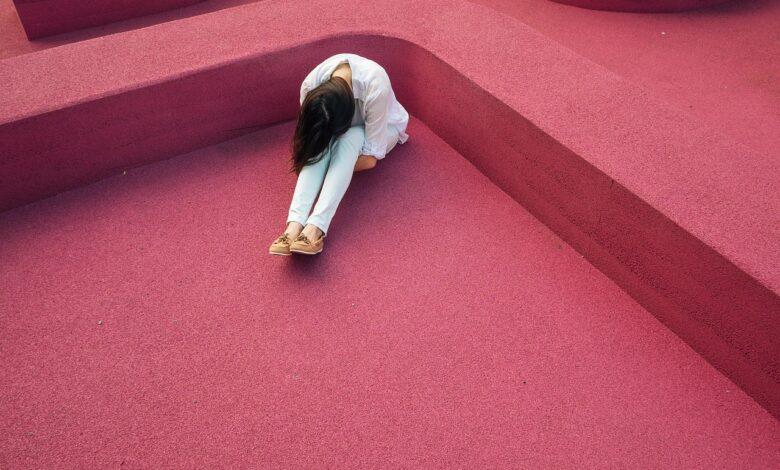Crying Dream Meaning : What Does It Mean ?

Ever jolted awake with tears streaming down your face? You’re not alone. Dreams vividly intertwine with our deepest emotions, fears, and desires, and crying dreams are among the most poignant. Understanding the crying dream meaning can offer profound insight into your subconscious mind and emotional health. So, what hidden messages do your dreams of tears convey?
Crying Dream Meaning & Interpretations
Delving into the realm of dreams, we find that crying, a profound human expression, encapsulates a spectrum of meanings. In the dream world, crying is not just an expression of sadness or distress but can embody various aspects of one’s life and internal state. The interpretations of crying in dreams can be multifaceted and deeply connected to an individual’s personal experiences, emotional health, and subconscious mind. Here, we explore several dimensions that crying in dreams can signify:
- Release of Suppressed Emotions:
- Indicators of Stress or Anxiety:
- Overwhelm: Crying in a dream can be a manifestation of accumulated stress or anxiety, indicating the dreamer’s struggle with high-pressure situations.
- Desire for Relief: Such dreams may signal an urgent need to reduce stress and seek tranquility and peace in one’s life.
- Reflections of Personal Loss or Regret:
- Mourning: Dreams of crying can often be direct representations of grief over a loss, be it a loved one, an opportunity, or a phase of life.
- Remorse or Guilt: Crying might also illustrate feelings of regret for a past action, symbolizing a desire for atonement or forgiveness.
- Signals of Empathy or Compassion:
- Connection with Others: If you dream of another person crying, it might symbolize your empathic connection with that person or a projection of your own feelings onto them.
- Desire to Nurture: Such dreams might also highlight a nurturing aspect of your personality, showcasing a strong desire to comfort and help others in distress.
- Harbingers of Joy:
- Tears of Happiness: Sometimes, crying in dreams isn’t about sorrow but joy. Overwhelming happiness can often bring tears, even in the dream world.
- Spiritual Enlightenment: In certain contexts, crying represents a joyous spiritual release or an awakening, signaling peace, harmony, and contentment.
Understanding crying dream meaning is akin to holding a mirror to one’s innermost thoughts and emotions. These dreams encourage an introspective journey, prompting individuals to confront, acknowledge, and process their emotions in a healing way. While the path to deciphering these dreams is highly personal, they often serve as enlightening stepping stones towards emotional growth and self-discovery. Remember, the context and your feelings in the dream are crucial to unlocking the unique message your subconscious is conveying through the tears.
Symbolism of Dream of Crying: Unveiling the Mystery
Dreams serve as the canvas upon which our subconscious mind projects its most profound thoughts and desires. When it comes to a dream of crying, the imagery is especially compelling, often woven with rich symbolism that transcends the mere act of shedding tears. The enigmatic nature of these dreams captivates the human psyche, urging us to explore beneath the surface into the realm of universal symbols and personal allegories. Here’s an in-depth exploration of the potential symbolism harbored in crying dreams:
- Water and Emotional Fluidity:
- Elemental Connection: In symbolic language, water often represents emotions. In this light, tears can be seen as the embodiment of emotional states, fluid, and ever-changing.
- Flow of Feelings: Just like a stream finding its course, tears in a dream might indicate the necessity of letting emotions flow naturally, without restraint.
- Release and Liberation:
- Breaking Bonds: Crying can symbolize the breaking free from repressive emotional bonds, suggesting a liberation of sorts from pent-up feelings.
- Refreshing Rain: Similar to a rainstorm clearing the air, crying in dreams might indicate a cleansing process, refreshing and renewing the spirit.
- Transformation and Renewal:
- Metamorphosis: Just as the caterpillar undergoes a transformation to become a butterfly, a crying dream might signify an emotional or spiritual metamorphosis.
- Rebirth: In some spiritual contexts, tears are seen as a symbol of rebirth, an indication of shedding the old to make way for the new.
- Vulnerability and Strength:
- Exposed Heart: Crying often reveals our most vulnerable side, suggesting that the dreamer may need to acknowledge their vulnerabilities to heal or grow.
- Hidden Fortitude: Conversely, showing emotions is a sign of strength. Crying in dreams could symbolize the power rooted in accepting and expressing true feelings.
- Communication and Unspoken Words:
- Silent Messages: When words fall short, tears can communicate what’s unsaid. A dream of crying may be a message from the subconscious, speaking volumes without a single word.
- Emotional Appeal: It might also represent a deep desire to connect with others on an emotional level, to be understood, and to express unarticulated fears or desires.
Unraveling the symbolism of a dream of crying demands personal introspection, as the layers of meaning can be deeply entwined with an individual’s experiences, culture, and emotional state. These dreams, with their tapestry of symbols, invite us to explore the caverns of our subconscious, seeking understanding and empathy, not just with others but also with the hidden realms of ourselves. They encourage a dialogue with our inner being, nudging us toward emotional equilibrium and wholeness. Remember, each tear shed in a dream is a pearl of wisdom from the depths of the psyche, waiting to be discovered and cherished.
Common Scenarios: What Does Dream about Crying Mean?
When you dream about crying, the scenarios can vary significantly, and each unveils a different layer of your subconscious mind. These dreams can be vivid and emotional, leaving a lasting impression well into waking hours. They can encompass a range of emotions, from grief and despair to joy and relief. Understanding these common scenarios is pivotal in grasping the broader crying dream meaning. Let’s dissect several typical contexts:
- Crying Alone:
- Isolation: Dreaming of crying by yourself might symbolize loneliness or feelings of isolation, indicating that you feel misunderstood or disconnected from the people around you.
- Personal Reflection: It can also signify a deeply personal moment of introspection or realization, a private acknowledgment of something significant.
- Crying in Public:
- Vulnerability: This scenario could reveal your discomfort with showing emotions publicly, perhaps fearing judgment or ridicule.
- Seeking Support: Conversely, it might indicate a cry for help, suggesting you’re seeking compassion, empathy, or support from others.
- Someone Else Crying:
- Empathy: Observing another person crying in your dream could be a reflection of your empathetic nature, your subconscious responding to the cues of emotional distress in others.
- Projection: Alternatively, it might be a projection of your own feelings—you’re attributing your emotions to someone else because you find them challenging to confront.
- Crying for Joy:
- Emotional Overflow: Sometimes, crying in dreams isn’t about sadness. It might represent an overwhelming sense of happiness or gratitude, emotions so intense they manifest as tears.
- Achievements: This can also symbolize personal accomplishments or the joy of overcoming hurdles, highlighting profound relief and satisfaction.
- Unable to Cry:
- Repression: Dreaming of wanting to cry but being unable to may symbolize suppressed emotions, suggesting you’re having trouble expressing your feelings in waking life.
- Internal Barriers: It might also point to internal constraints, perhaps self-imposed, that prevent you from releasing pent-up emotions.
- Hearing Crying but Not Seeing It:
- Unresolved Issues: This scenario might indicate that you’re not paying enough attention to your emotional needs or that there are unresolved issues lurking in your subconscious.
- Call to Action: It can also be interpreted as a call to action, a sign that you need to reach out to someone or address an underlying emotional concern.
In interpreting these scenarios, it’s crucial to consider your own feelings and experiences. Dreams about crying are deeply personal, and their meanings can significantly differ from one person to another. Reflect on your current life circumstances, emotional health, and relationships for a more accurate interpretation. Remember, while these dreams might be unsettling, they provide valuable insights into your emotional well-being, serving as gateways to greater self-understanding and growth.
Insights into Crying in Dream: Themes & Visions
Dreams, the mysterious narratives of our subconscious, often present themselves in themes and visions, each with a unique set of symbols and meanings. When it comes to crying in dreams, these themes can range from straightforward to complex, painting a picture of our inner emotional landscape. Here, we delve into various thematic representations and visions associated with crying in dreams, each offering a unique insight into what your subconscious might be communicating:
- Tears as Rain:
- Cleansing & Renewal: If tears in your dream take on the form of rain, this could symbolize a period of cleansing and renewal, washing away the old to make room for new beginnings.
- Fertility & Growth: Similarly, as rain nurtures the earth, this theme might indicate personal growth, nurturing your emotional or spiritual aspects.
- Crying over Spilled Milk:
- Regret & Futility: This vision could represent feelings of regret over past actions that can’t be undone, indicating that you’re spending too much energy on what’s already passed.
- Acceptance & Moving On: Conversely, it might be a signal to stop worrying over the unchangeable and to focus instead on the present or future.
- Tears of Blood:
- Intense Pain or Sacrifice: This disturbing imagery often points to a deep emotional wound or a sense of sacrifice; there’s something in your waking life causing significant distress.
- Profound Change: It could also symbolize a radical transformation, requiring the shedding of “old blood” to pave the way for profound healing or alteration.
- Crying without Tears:
- Emotional Dehydration: This might indicate feelings of numbness or emotional exhaustion, suggesting you feel drained due to ongoing stresses or challenges.
- Disconnect: It might also symbolize a disconnect between your emotions and their expression, perhaps you’re holding back on what needs to be released.
- Tears Turning into Something Else:
- Transformation & Perception: If your tears morph into another object or element, this suggests a transition in your emotional perception, indicating a change in how you view certain aspects of your life.
- Hidden Potentials: This transformation can also symbolize the emergence of unexpected strengths or talents, revealing qualities you didn’t know you possessed.
- Crying in a Void or Darkness:
- Fear of the Unknown: Crying in an empty space or darkness can symbolize feelings of uncertainty, fear, or apprehension about the future.
- Search for Inner Light: It may also represent a journey to find clarity, truth, or understanding in a situation or phase of your life that currently feels opaque or confusing.
The thematic nuances in a dream about crying are rich with symbolism, requiring introspection for a comprehensive understanding. They reflect not just your conscious emotions but also subconscious inklings, fears, desires, and repressed thoughts. When trying to interpret these themes and visions, consider your personal context, emotional state, and recent life experiences. Your subconscious often uses the metaphor of tears to draw attention to something that needs nurturing, resolution, or release. These dream motifs, while sometimes unsettling, are valuable messengers, guiding you towards self-awareness, healing, and equilibrium.
Psychological Perspectives on Crying Dream Analysis
Analyzing dreams through the lens of psychology offers profound insights into the human mind. When it comes to dreams about crying, psychological interpretations can reveal underlying emotional states, unresolved issues, and deeper aspects of the psyche. The act of crying, after all, is a universal human expression spanning a spectrum of emotions from sorrow to joy, frustration to relief. Here’s how various psychological perspectives interpret crying in dreams:
- Freudian Analysis:
- Cathartic Release: Freud often emphasized the role of dreams in expressing repressed desires and emotions. Crying in a dream, from this viewpoint, might represent a release of pent-up emotions that one suppresses in waking life.
- Symbolic Interpretation: Freud might also interpret crying as a symbol for something else, often related to childhood experiences or suppressed sexual desires, depending on the individual’s circumstances.
- Jungian Perspective:
- Shadow Self: Carl Jung might see a dream of crying as an interaction with the shadow self, an encounter with the deeper, often darker parts of our psyche that we tend to ignore or hide from.
- Individuation Process: Crying could also signify the process of individuation, representing the dreamer’s journey toward becoming their true self by integrating various aspects of their personality.
- Existential Analysis:
- Search for Meaning: From an existential viewpoint, crying in a dream could indicate a deep search for meaning or a sense of alienation and loneliness, reflecting the inherent human condition.
- Confronting Angst: It might also symbolize the dreamer’s confrontation with existential angst, dealing with issues related to freedom, mortality, and purpose.
- Gestalt Therapy Perspective:
- Unfinished Business: Gestalt therapy often focuses on the here-and-now experience. A crying dream, in this context, might indicate unresolved issues or “unfinished business” from the dreamer’s past affecting their present.
- Emotional Awareness: It could also encourage a dreamer to become more aware of their emotional responses and to experience them more fully in their waking life.
- Cognitive-Behavioral View:
- Stress Indicator: In CBT, a crying dream might be seen as a reflection of stress or anxiety, indicating issues in waking life that the dreamer finds overwhelming or difficult to handle.
- Problem-Solving: Alternatively, it might be viewed as the mind’s attempt to work through and solve problems the dreamer is facing.
Crying in Dreams: Insights from Culture & Mythology
Dreams about crying aren’t just psychological phenomena—they’re also steeped in cultural symbolism and mythological significance. Across various cultures and mythological lore, crying has long been viewed as something transformative and deeply revealing of the human spirit. Here’s how different cultures and mythological systems interpret crying in dreams:
- Greek Mythology:
- Tears of the Gods: In Greek mythology, the gods wept for various reasons, and their tears often held transformative powers, symbolizing human-like emotions and changes in divine intentions.
- Oracles and Prophecies: Crying also played a role in prophetic visions, indicating divine messages or warnings conveyed through intense emotional expression.
- Native American Traditions:
- Spiritual Communication: In some Native American cultures, crying in dreams is seen as a form of communication with ancestors or the spirit world, offering guidance or solace.
- Rituals of Healing: Tears are often considered sacred and healing, purifying the individual and making way for spiritual awakening or renewal.
- Eastern Philosophies:
- Balance of Yin and Yang: In some Eastern philosophies, crying is seen as a natural expression of the balance between yin (passive, cold, feminine) and yang (active, hot, masculine), maintaining emotional, physical, and spiritual harmony.
- Release of Chi: Crying might also be viewed as a release of chi (vital energy), clearing blockages and allowing life force to flow freely.
- African Cultural Perspectives:
- Communal Connection: In various African cultures, crying emphasizes community bonds, and crying in dreams might highlight the need for community support or the sense of belonging.
- Ancestral Voices: Dreams are often considered messages from ancestors, and crying could indicate their sadness or concerns, urging the dreamer to heed traditional wisdom or values.
- Norse Mythology:
- Omens of Change: In Norse mythology, tears, especially godly tears, were considered omens of significant change, foretelling events that could alter the course of human lives.
- Emotional Strength: Crying, particularly in warriors or gods, was not seen as a weakness but as a profound emotional strength and honesty.
In both psychology and cultural mythology, crying dreams carry significant weight. They’re seen as pathways to understanding the self, connecting with a broader human experience, and even communicating with the divine. These perspectives, diverse as they are, offer a multidimensional understanding of what it means to dream of crying, highlighting the inherent complexity and deep humanity of such visions. They remind us that tears, in all their forms, are a universal language, transcending cultural divides and echoing through the corridors of human history.
Conclusion
Deciphering the crying dream meaning is a journey through your subconscious, reflecting your inner fears, desires, and struggles. While these dreams can be unsettling, they offer a unique opportunity for emotional healing and self-discovery. Remember, the tears shed in dreams water the garden of the soul, encouraging growth, resilience, and a deeper understanding of the self. So, next time you wake up from a crying dream, don’t shy away from exploring its depths — your psyche is inviting you to uncover layers of profound insights and emotional liberation.



